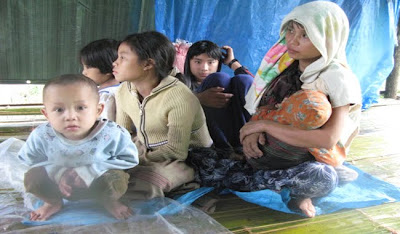Russia taking raw Uranium from Burma since 2007
by KNG
A Russian firm has been taking raw Uranium from Hpakant areas in Burma's northern Kachin State since 2007, said reliable local sources.
Victorious Glory International Private Ltd. of Russia is taking the raw Uranium from the company's Uranium mines in Tarmakhan, Hongpa near Katai Taung, under tight security provided by the ruling junta, said eyewitnesses.
A local eyewitness told KNG today, the company's mining areas are fenced off with opaque covers and the Uranium is mined inside the mountain with sophisticated digging machines.
The raw Uranium is specially packed in sacks, which look like cement sacks. It is then transported to Hopin railway station in large trucks. Then the Uranium is transported to Rangoon sea port by trains for delivery to Russia, said sources close to the company and eyewitnesses.
According to eyewitnesses in Hpakant, the company has been excavating the raw Uranium from these areas since 2007.
The company signed an agreement with the ruling junta in Naypyitaw on February 15, 2007 for exploration of gold and associated minerals along Uru Hka River (or Uru Hka in Kachin) between Hpakant in Kachin State and Homalin in Sagaing Division.
One year before the two sides reached an agreement, Russian Uranium explorers arrived in the area, said residents of Hpakant. The movements of Russian miners are specially secured in the mines and outside by security forces of the junta, said residents of Hpakant.
The junta is constructing a nuclear plant in caves after tunneling into a mountain in Naung Laing in northern Burma, some 600 kilometres north of Rangoon. Five North Koreans worked there, according to South Korean media reports. A nuclear reactor from which plutonium can be extracted is also allegedly being built.
Two defectors from the Burmese Army testified recently that the junta has a secret nuclear weapons programme, which is being supported by North Korea and Russia.











